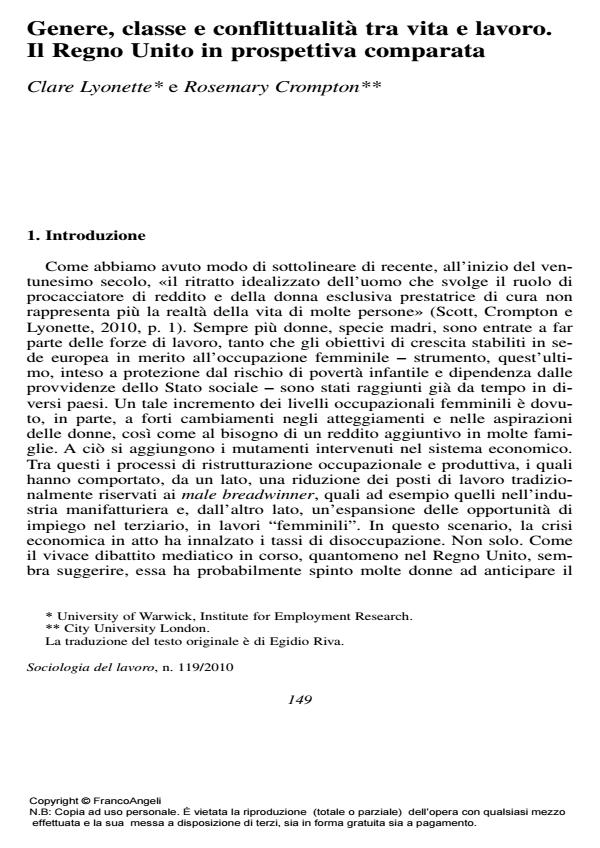Gender, occupational class and work-life conflict. Uk in comparative perspective
Journal title SOCIOLOGIA DEL LAVORO
Author/s Clare Lyonette, Rosemary Crompton
Publishing Year 2010 Issue 2010/119
Language Italian Pages 19 P. 149-167 File size 298 KB
DOI 10.3280/SL2010-119009
DOI is like a bar code for intellectual property: to have more infomation
click here
Below, you can see the article first page
If you want to buy this article in PDF format, you can do it, following the instructions to buy download credits

FrancoAngeli is member of Publishers International Linking Association, Inc (PILA), a not-for-profit association which run the CrossRef service enabling links to and from online scholarly content.
Changed attitudes and aspirations, the recognised need for two incomes, and developments in the wider economy have all led to increased female employment. There are large variations in national-level strategies relating to women’s employment and support for childcare: this paper discusses levels of conflict in five European countries, followed by a focused analysis of the Uk. Further quantitative and qualitative analyses carried out in the Uk highlight the importance of occupational class in work-life conflict: those in professional/ managerial occupations were significantly more likely to report high levels of conflict, and women reported higher conflict than men. Professional/managerial women were also more likely to work longer hours than women in other occupational classes. Women, therefore, face a difficult "choice". If they wish to develop a career, they recognise the need to work full-time, increasing the potential for work-life conflict. Moving to part-time work means that women will fail to realise their full potential, but they may be able to balance work and family roles more easily. The implications for policy are discussed.
Keywords: Gender, class, work-life conflict, family, childcare
Clare Lyonette, Rosemary Crompton, Genere, classe e conflittualità tra vita e lavoro. Il Regno Unito in prospettiva comparata in "SOCIOLOGIA DEL LAVORO " 119/2010, pp 149-167, DOI: 10.3280/SL2010-119009